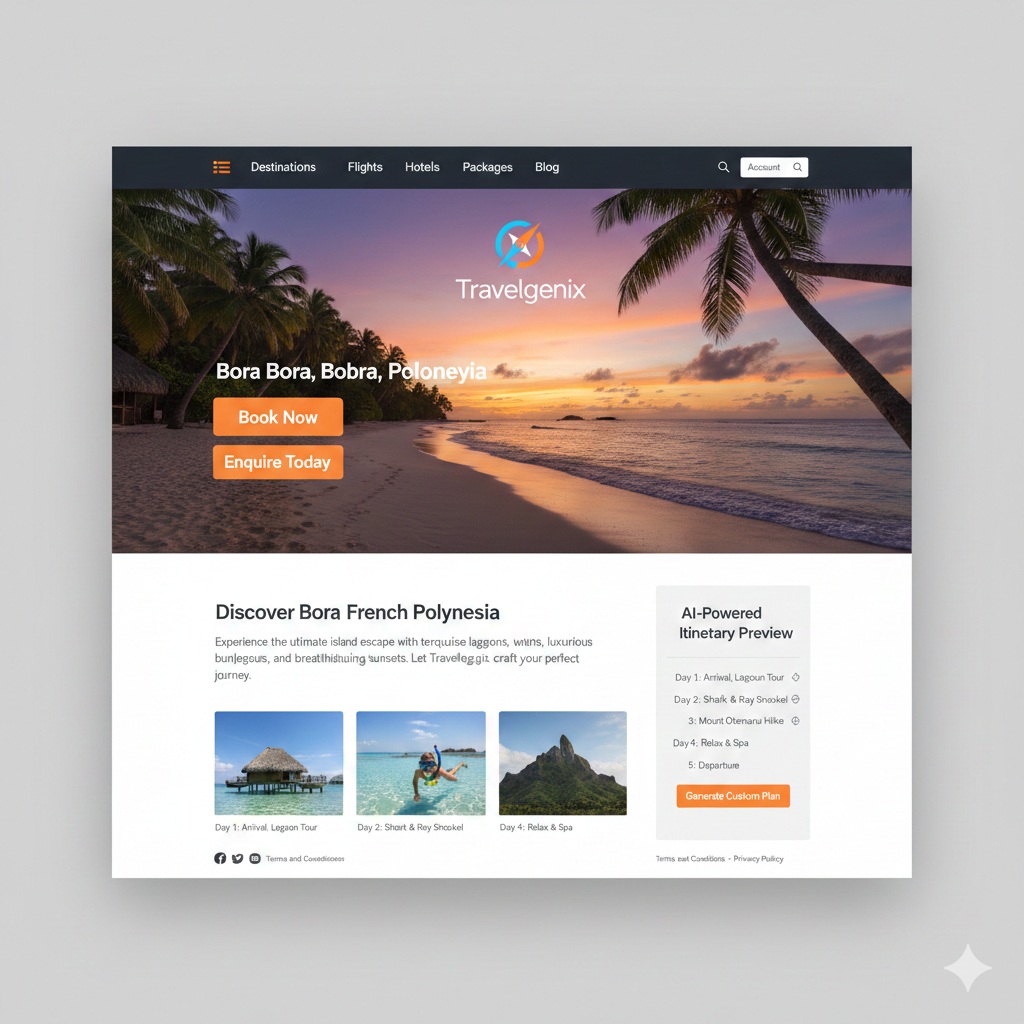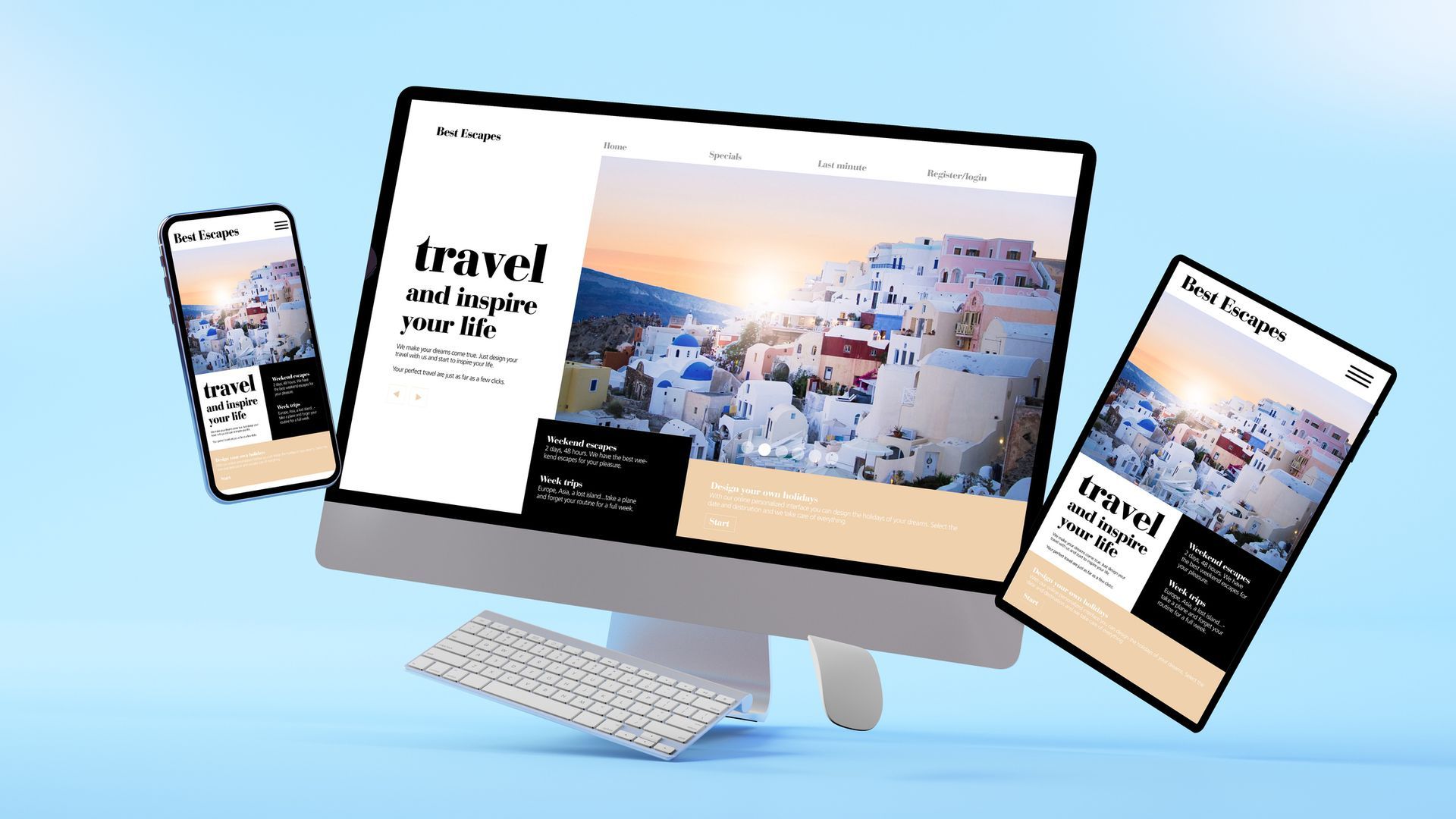The Triple Tactic: Identifying, Understanding, and Driving Relevant Traffic to Your Travel Website
In the travel industry, your website is more than a digital brochure; it's a dynamic platform to connect with potential customers.
The importance of having a strong online presence in the travel industry cannot be overstated. In a rapidly evolving digital landscape where countless travel websites compete for the attention of potential customers, merely existing isn't enough. To ensure your website’s success and profitability, you need to apply the Triple Tactic: Identify, Understand, and Drive Relevant Traffic.
Identifying Your Customer
The first step to creating a successful travel website begins with identifying your customer. Your business may cater to multiple customer segments, but you need to determine the unique traits of each. Is your target audience budget-conscious backpackers, luxury tourists, or adrenaline-chasing adventurers?
Understanding your customers' demographics, such as age, gender, location, and lifestyle, helps define your offerings better. For instance, if you cater to senior tourists, your website might highlight slow-paced, culturally-rich tours, while a younger audience might be more interested in active or off-the-beaten-path experiences.
Segmentation tools and analytics, like Google Analytics, can be incredibly helpful in discerning these traits. You can also conduct surveys, engage with customers on social media, and study your competition to understand the kind of customers they attract.
Understanding Your Customer
Once you've identified your potential customers, the next step is understanding them. What are their travel preferences? What factors influence their decision-making process? How do they typically plan and book their trips?
You need to delve deep into their psychographics— values, attitudes, interests, and lifestyle. For instance, environmentally-conscious travellers might prefer eco-friendly accommodations and experiences.
Similarly, a food lover might be tempted by gourmet experiences in their chosen destination.Understanding your customer also involves mapping out their customer journey. Are they likely to book impulsively, or do they prefer thorough research before committing? Which platforms do they use for information or bookings? The answers to these questions can help tailor your content, website design, and marketing strategy.
Driving Relevant Traffic to Relevant Pages
Once you've identified and understood your customer, the final step is driving relevant traffic to relevant pages on your website. The goal is to create a seamless, personalised experience that encourages potential customers to make a booking.
To achieve this, use Search Engine Optimisation (SEO) to improve your website’s visibility. Utilise relevant keywords your target audience might use, create high-quality content, and ensure your website is mobile-friendly.Invest in Pay-Per-Click (PPC) advertising to target specific customer segments. Tools like Google Ads allow you to show your ads to people who are actively looking for what you offer.
Additionally, engage in social media marketing. Social platforms provide an excellent opportunity to reach your target audience, share your content, and drive traffic to your website. Use Facebook's or Instagram's targeted advertising to reach potential customers based on their interests and demographics.
Lastly, make sure to lead your potential customers to the most relevant pages. If you're targeting food-loving travelers, direct them to pages highlighting gastronomic experiences. If you're targeting budget-conscious backpackers, lead them to budget-friendly package pages.
In the travel industry, your website is more than a digital brochure; it's a dynamic platform to connect with potential customers.
By identifying and understanding your customers, you can create a more personalised user experience that caters to their unique needs and preferences. Moreover, by driving the right traffic to the right pages, you're more likely to convert potential customers into bookings, increasing your overall success and profitability.




